Listen to This Article:
There’s one thing every good chef knows, and that’s how to roast the competition. Okay, so cooking competitions are friendlier than that, but the idea remains–chefs make strong competitors. From local cook-offs to The Great British Bake-Off, a level of competition can fuel flavor, innovation, and creativity for culinarians of all types.
Each year, cooking competitions give professional chefs the opportunity to prove their culinary prowess. Here’s a look at five of the most prestigious cooking competitions in the world.
1. Bocuse d’Or
This world-renowned competition is listed first for a reason. The Bocuse d’Or competition was created in 1987 by innovative French chef, Paul Bocuse, in order to expand public appreciation and awareness of culinary artistry.
The competition is revered as one of the most prestigious in the world because of the global talents that gather, along with the intense culinary challenges, time constraints, and expert judging. Currently, 24 countries are selected to compete in the rigorous competition, comprising multiple rounds and culminating in the Grand Final in Lyon, France. But getting there is no simple feat.
“To succeed in competitions, preparation is key! You need to plan your physical and mental preparation carefully. Repeat your routine until it meets your expectations (or until time runs out). Finally, show up and perform your choreographed movements with confidence!”
Chef Tracy DeWitt, Escoffier Chef Instructor of Pastry Arts and General Education
Teams are chosen at selection events around the globe. Each team is made up of two people–the chef and commis chef (who must be 22 years old or younger). The selected teams then participate in a two-day event where they create a meat platter and a plated dish–and they do it in front of a stadium of people.
Dishes are judged by two panels. While the Kitchen Jury assesses operational qualities like hygiene, organization, waste reduction, and technical skills, the Tasting Jury focuses on visual presentation, harmony of flavors, and garnishes. In addition to 20,000 euros for first place (15,000 for second and 10,00 for third), finalists can walk away with increased pride and respect from their peers.
Winning aside, to even be selected for this competition is an honor. Just ask Chef Philip Tessier, who was the first American chef to ever reach the podium of the Bocuse D’Or. On top of this accomplishment, Tessier returned to the competition a few years later to guide the first American team to the Gold Medal. His record-breaking experience in the Bocuse D’Or laid the foundation for his current culinary career.
“I think it’s such an extraordinary thing. To be there in that stadium. It’s 2,500 fans, it’s everything–the tempo, the pace, the excitement. The intensity is second to none. It really pushes you to your limits. To this day I still look back and wonder, how do I get back to that level? It’s something that pushes you to your limits in a really good way.”*
Chef Philip Tessier, Bocuse d’Or Gold Medalist
2. Culinary Olympics
The IKA/Culinary Olympics is the longest-standing platform for chefs to challenge and compare their skills, occurring every four years since 1990. Elite chefs from around the world compete in various categories, either as a team or individually. Preparation begins long before teams gather in Stuttgart, Germany, as they practice and perfect their menu items and programs.
Participants create dishes to represent their country or region. These are then judged by more than 60 jurors using a detailed point system. The judges evaluate eight areas: creative overall performance, perfection, precision, outstanding taste, time management, work organization, cleanliness in the kitchen, and presentation of the food.
Those with the most points at the end of the competition will be crowned Olympic champions. In addition to the element of competition, the Culinary Olympics are considered an inspiring networking event. Fans, friends, and future competitors purchase tickets to the various events to watch culinary excellence in action and mingle with other experts in their industry. The Culinary Olympics are held every four years, and the next competition will be held in February 2024.
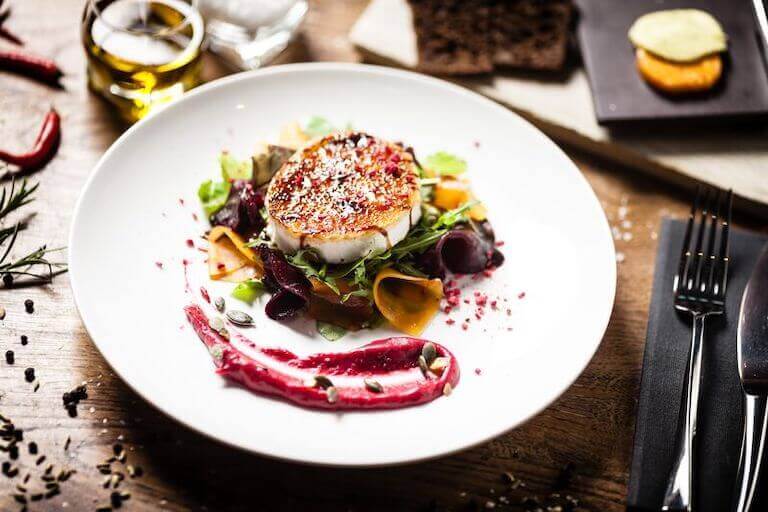
Dishes are often judged on presentation and plating as well as taste.
3. World Pastry Cup
The World Pastry Cup, or Coupe du Monde de la Pâtisserie, is considered the most prestigious pastry competition in the world. Held every two years in Lyon, France, participating teams must first emerge victorious from 50 national and five continental qualifying competitions.
The teams are made up of three pastry experts–an ice cream specialist, sugar expert, and chocolate maker. Throughout the competition, they tackle challenges in each field and combine their talents to produce innovative confectionary creations.
The tasting round of competition challenges chefs to incorporate specified flavors, ingredients, and techniques. For example, pastry chefs have been challenged to create 26 frozen lollipops that can be eaten in a single bite. The next round focuses on artistry, requiring chefs to build chocolate, sugar, and sculpted water ice creations that meet certain measurement requirements.
Winners are selected by two juries. The Tasting Jury focuses on presentation, taste, working techniques, skills, and respect for the products and originality of the recipes. The Restaurant Style Dessert Jury considers all of these aspects, as well as how it is served. The event is exciting for spectators as well. Each year, aspiring pastry artists and fans of the art buy tickets to see the world’s most innovative confections come to life.
“I’m already winning contests and built my own restaurant. I kind of fast-tracked myself. And I really feel like Escoffer was a huge part of that.”*
Chef Lance McWhorter, Escoffier Online Graduate, Executive Chef/Owner, Culture ETX & Food Network’s “Chopped” Contestant
4. San Pellegrino Young Chef
In this cooking competition, 15 young chefs from around the world (born after January 2, 1992) bring their best to Milan, where only one will receive the S. Pellegrino Young Chef Academy Award. These contestants are also required to have worked full-time for at least one year in one or more restaurants/catering companies as “commis” or “chef de cuisine” or “chef de partie” or “sous chef.”
Before competing in the Grand Final, the chefs must win their regional finals where they are judged on technical skills, creativity, personal belief, and vision. Once in the Grand Final, young chefs are guided by a highly revered industry mentor and must bring a signature dish to the competition.
“I think that competition and certification both represent opportunities to push yourself outside of your comfort zone and learn a lot.”*
Chef Frank Volkommer, Escoffier Culinary Education Specialist
The goal of this competition is to unveil the most talented rising chefs who will shape the future of gastronomy. A jury of internationally recognized chefs name the overall winners, as well as a number of other titles throughout the competition, like the S. Pellegrino Award for Social Responsibility, which recognizes essential leadership qualities as well as technical skill.
5. MasterChef: The Professionals
Though drama is a main ingredient for televised cooking competitions, MasterChef: The Professionals focuses on skill. Each season, 32 professional chefs compete in a series of challenges over six weeks, until one winner remains.
The most recent winner, named by a Michelin-star-studded panel of judges, is Derby Chef NIkita Pathakji. She won in the final challenge to create three courses in just three hours. Pathakji’s menu reflected her travels across Asia, and it won her the MasterChef trophy, title, and $250,000.
Applicants 20 years and older, with professional chef experience, are now being accepted for the 2023 competition.
Bonus Competitions: Recommendations from Escoffier Chef Instructors
There are, of course, a few more competitions worth noting. Escoffier Culinary Education Specialist Frank Volkommer encourages chocolatiers to take note of The World Chocolate Masters competition, held every two years in Paris. This event is considered to be the world’s most prestigious chocolate competition. The 18 jury members–one from every region that participates in the competition–are “experts in gastronomy, pastry, and confectionery” and judge the finalists on seven different tasks.
“I’ve done over 10 major competitions and participated in 3 national title shots with one big win at the National Bread and Pastry Championship 2006. To succeed in competitions, preparation is key! You need to plan your physical and mental preparation carefully. Repeat your routine until it meets your expectations (or until time runs out). Finally, show up and perform your choreographed movements with confidence!”*
Chef Tracy DeWitt, Escoffier Chef Instructor of Pastry Arts and General Education
The American Culinary Federation hosts a plethora of competitions and is one of the premier certifying agencies for chefs. Chef Kirk Bachmann, Escoffier Boulder Campus President and host of The Ultimate Dish podcast, believes that ACF cooking competitions can play a chief role in raising the standard of excellence for a chef or a cook. He shares, “Personally, competing was an opportunity to challenge myself against the craft I love, in a competitive format. The ACF competitions offer a platform to demonstrate an ability to present ingredients and garnishes that are well prepared with consideration for presentation, flavor, and nutrition–essentially, perfect harmony!”*
Become A Culinary Competitor
The best competitors know that the competition starts months–sometimes years–before the listed competition dates. The process looks something like education, training, practice, and repeat.
In many competitions, you never know what challenges you will face. Sure, you can expect to make desserts in a pastry competition, or main dishes in a culinary competition, but variables like ingredients and time limits may change. Even factors like elevation, climate, and equipment could impact your performance. But these are all things that the proper training can help prepare you for.
For many Escoffier graduates, like Chef Lance McWhorter, a formal culinary education can form the link between an interest in the field, winning competitions, opening restaurants, and more. At Escoffier, students can explore the fundamentals of each discipline, and later move on toward more complex culinary techniques. As they practice and progress, they may gain the freedom to create dishes and desserts of their own, and there’s no ceiling on the possibilities.
Hands-on industry externships and guidance from seasoned professionals can help provide graduates a comprehensive understanding of the culinary world and how to navigate it. If you’re interested in entering a culinary competition or starting your career, education is a great place to start. Talk to someone about your options today!
Learn more about the world of cooking competitions, and how to prepare, with these articles:
- 4 Tips for Entering a Competitive Cooking Event
- Master Baker Colette Christian on Perseverance and Never Giving Up
- From Motorsports to Making Tortes: Escoffier Certified Master Pastry Chef® Frank Vollkommer
*Information may not reflect every student’s experience. Results and outcomes may be based on several factors, such as geographical region or previous experience.

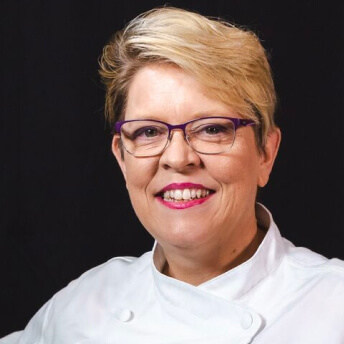 “To succeed in competitions, preparation is key! You need to plan your physical and mental preparation carefully. Repeat your routine until it meets your expectations (or until time runs out). Finally, show up and perform your choreographed movements with confidence!”
“To succeed in competitions, preparation is key! You need to plan your physical and mental preparation carefully. Repeat your routine until it meets your expectations (or until time runs out). Finally, show up and perform your choreographed movements with confidence!”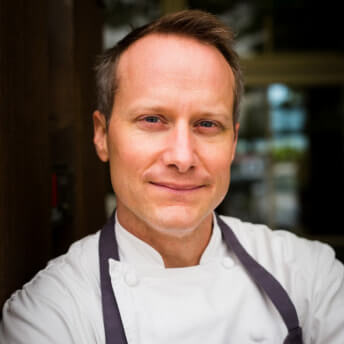 “I think it’s such an extraordinary thing. To be there in that stadium. It’s 2,500 fans, it’s everything–the tempo, the pace, the excitement. The intensity is second to none. It really pushes you to your limits. To this day I still look back and wonder, how do I get back to that level? It’s something that pushes you to your limits in a really good way.”*
“I think it’s such an extraordinary thing. To be there in that stadium. It’s 2,500 fans, it’s everything–the tempo, the pace, the excitement. The intensity is second to none. It really pushes you to your limits. To this day I still look back and wonder, how do I get back to that level? It’s something that pushes you to your limits in a really good way.”*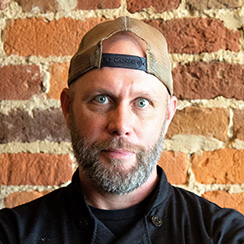 “I’m already winning contests and built my own restaurant. I kind of fast-tracked myself. And I really feel like Escoffer was a huge part of that.”*
“I’m already winning contests and built my own restaurant. I kind of fast-tracked myself. And I really feel like Escoffer was a huge part of that.”*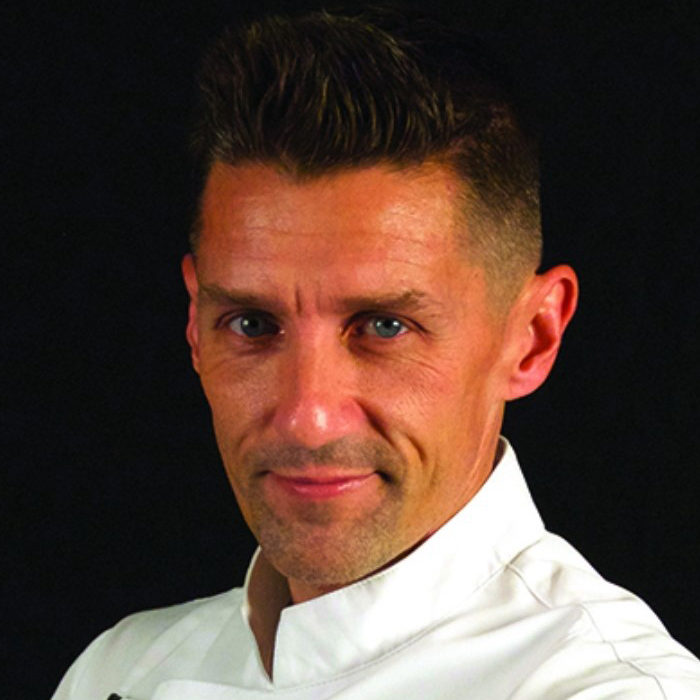 “I think that competition and certification both represent opportunities to push yourself outside of your comfort zone and learn a lot.”*
“I think that competition and certification both represent opportunities to push yourself outside of your comfort zone and learn a lot.”*